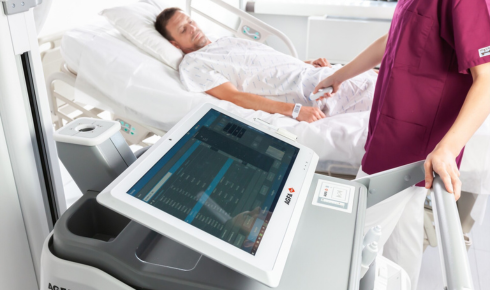1. What is a preventative health check-up?
A preventative health check-up is an annual medical examination for early detection of diseases before they become big-time conditions.
2. Why are preventative health check-ups important?
They help detect early signs of chronic diseases, improve health outcomes, and promote overall well-being by addressing health concerns proactively.
3. How often should I have a preventative health check-up?
It is age-dependent, health status-dependent, family history-dependent, and risk factor-dependent. Adults should get one every 1-3 years, while older adults might require an annual check-up.
4. What is the age at which I should begin receiving preventative health check-ups?
Preventative check-ups can be initiated early in adulthood, usually between 18 and 21 years of age, and more frequently as a person ages or develops certain risk factors.
5. What tests are included in a typical preventative health check-up?
Common tests include blood pressure, cholesterol levels, blood sugar, cancer screenings, immunizations, and assessments of organ function.
6. What is a whole body check-up?
A whole body check-up is comprehensive because it embraces a broad number of tests to ensure that everything looks good regarding health, whether it is heart health, metabolic health, or potential cancer.
7. How do preventative health check-ups help save healthcare costs?
Preventative health check-ups prevent the cost of expensive treatments for advanced conditions and therefore reduce long-term healthcare costs.
8. Do preventive health check-ups include mental health tests?
Yes, most check-ups include mental health tests, such as emotional well-being, stress management, and cognitive function.
9. Are preventive health check-ups covered by insurance?
Most insurance plans do cover check-ups and screenings, especially if they are part of standard preventive services.
10. Can preventive health check-ups help with weight management?
Yes, they include measurements of body composition, nutrition, and fitness levels to guide the management of weight.
11. What are the most common screenings included in check-ups for adults?
Screenings include blood tests, cancer screenings such as mammograms and colonoscopies, and screenings for heart disease and diabetes.
12. What role do vaccinations play in preventative health check-ups?
Vaccinations are crucial for preventing infectious diseases and are included in preventative health check-ups to maintain immunization schedules.
13. Can preventative health check-ups detect early signs of cancer?
Yes, screenings like mammograms, colonoscopies, Pap smears, and skin exams help detect cancer early, improving treatment outcomes.
14. How do check-ups benefit those with chronic conditions?
Regular check-ups help monitor chronic conditions, adjust treatments, and prevent complications through ongoing management.
15. What are genetic screenings used for in preventative health check-ups?
Genetic screenings assess hereditary risks for diseases such as cancer, heart disease, and neurological conditions, enabling early intervention strategies.
16. Is it necessary to fast before blood tests during check-ups?
Some blood tests, like cholesterol and glucose, may require fasting beforehand. However, guidelines may vary depending on the specific test.
17. What health risks are assessed in preventative check-ups for older adults?
Check-ups on older adults will include the checking of bone density, memory, balance, vision, and hearing, along with routine monitoring for chronic conditions.
18. How do preventative health check-ups help with heart health?
They include evaluations like cholesterol levels, blood pressure, and lifestyle evaluations that help lower cardiovascular risks.
19. Are children also beneficiaries of preventative health check-ups?
Yes, children’s check-ups monitor growth and development, track immunizations, and monitor screening for childhood illnesses.
20. What is the role of family history in a preventative health check-up?
Family history is helpful in identifying genetic risks, thereby guiding individualized screenings and early intervention for hereditary conditions.
21. How do I prepare for a preventative health check-up?
Preparation includes gathering all medical records, listing current medications, discussing family health history, and following any specific instructions provided by the doctor, such as fasting.
22. What are the risks of missing a preventative health check-up?
Delayed check-ups may result in undiagnosed conditions, worsening health issues, and a lack of early interventions that could prevent serious complications.
23. How do preventive check-ups affect mental well-being?
They evaluate mental health, screen for conditions such as depression and anxiety, and promote mental resilience through lifestyle recommendations.
24. What are the benefits of early detection during check-ups?
Early detection allows for timely treatment, less invasive procedures, and better outcomes for conditions like diabetes, heart disease, and certain cancers.
25. Are there specific guidelines for preventative health check-ups for pregnant women?
Pregnancy check-ups monitor both maternal and fetal health, including screenings for gestational diabetes, prenatal vitamins, and genetic testing.
26. What types of screenings are offered for diabetes prevention?
Screenings for prediabetes and type 2 diabetes include fasting blood sugar, A1C, and glucose tolerance tests.
27. Do preventative health check-ups include eye exams?
Yes, eye exams are part of a comprehensive health check-up to detect conditions such as glaucoma, cataracts, and macular degeneration.
28. How does preventative health check-up address osteoporosis risk?
Bone density tests help evaluate the risk of osteoporosis and lead to treatment such as lifestyle modification or medication to promote bone health.
29. What vaccines are recommended in adult preventive check-ups?
The vaccines recommended include flu, pneumonia, tetanus, shingles, and HPV according to age and risk factors.
30. If my preventive health check-up returns abnormal results what should I do?
You need to discuss these findings with your doctor who could recommend further tests, lifestyle modifications, or specialists to help sort out potential issues.
31. How does a preventive health check-up aid my digestive health?
Check-ups comprise screening and evaluation for conditions such as irritable bowel syndrome, celiac disease, and colorectal cancer.
32. Are there specific screenings for autoimmune diseases?
Yes, the screenings for autoimmune diseases can comprise tests for rheumatoid arthritis, lupus, and other conditions through blood tests and imaging.
33. What is the role of physical fitness assessment in preventative health check-ups?
Physical fitness tests are conducted to analyze strength, flexibility, and heart health to allow for individualized exercise plans for better health outcomes.
34. Can preventive check-ups identify sleeping disorders?
Indeed, screenings for sleep apnea, insomnia, and other disorders can be evaluated through questionnaires, sleep tests, and a physical examination.
35. What is the point of keeping records of vaccinations for preventive check-ups?
Keeping vaccination records will ensure a person is well vaccinated against infections that can cause preventable diseases.
36. What do mental health screenings entail during check-ups?
Mental health check-ups screen mood, anxiety, stress, and cognitive function through questionnaires, interviews, and sometimes psychological exams.
37. How would preventive health check-ups influence cancer prevention?
Screening for cancer early often results in a better prognosis since the treatment would be carried out well if detected early.
38. Are health check-ups tailored to age and risk factors?
Yes, they are tailored to individual health needs, considering age, lifestyle, family history, and personal health goals for more effective outcomes.
39. What is the connection between weight management and preventative health check-ups?
Check-ups monitor weight trends and help in developing strategies for healthy weight maintenance through nutrition, exercise, and other lifestyle modifications.
40. What role does a primary care physician play in preventative health check-ups?
A primary care physician coordinates and conducts regular check-ups, provides initial screenings, and manages referrals to specialists when necessary.
These 40 FAQs give a comprehensive overview of the importance, benefits, and various components of preventative health check-ups to support a proactive approach to health management.





Been hearing a lot about Plus777asia lately. Gonna give it a shot! Anyone else tried it? Hope the wins are real! Check it out here: plus777asia